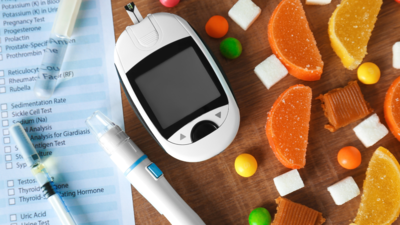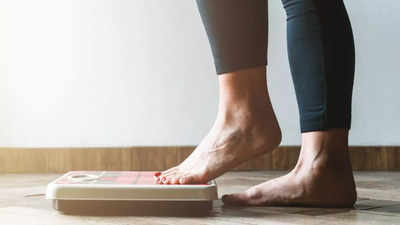5 herbs and spices to boost liver health
The article detailed how lifestyle and environmental factors impacted liver health. It emphasized the importance of a balanced diet with dark leafy greens, berries, nuts, seeds, and fatty fish. Additionally, the article recommended using Ayurvedic herbs and spices like amla, neem, turmeric, ginger, garlic, and holy basil to enhance liver function and support overall health.
Sodas and fizzy drinks have long been criticized for contributing to serious health issues like heart disease and strokes, and recent findings suggest that fruit juices may also pose a risk. A new study indicates that fruit juices can raise the risk of stroke by 22 percent. Researchers from the University of Galway, McMaster University, Canada, and an international panel of stroke experts discovered that consuming fruit juices two to three times a day doubles this risk. They describe these juices as "nothing more than just sugar syrups with no nutritional value," potentially increasing stroke likelihood by 37 percent, particularly affecting women more than men. The study, published in the Journal of Stroke, also noted that drinking over four cups of coffee daily heightens stroke risk.
How do fruit juices contribute to stroke risk?
Experts highlight a significant downside of fruit juice consumption: the absence of fiber, which is essential for healthy digestion and gut health. Juicing fruits results in immediate sugar release, causing quick spikes in blood sugar and insulin levels, which can promote inflammation. High sugar intake overstimulates the nervous system, leading to stress in blood vessels and ultimately increasing the risk of life-threatening conditions like strokes. Lead researcher Professor Andrew Smyth of the University of Galway noted that not all fruit drinks are equally harmful; freshly squeezed juices are generally beneficial, while those made from concentrates with added sugars and preservatives can be detrimental. The research also indicated that increased fizzy drink consumption correlates with a higher stroke risk.
To counter this, health professionals recommend drinking more water—about seven to eight glasses daily—to stay hydrated. Professor Smyth urges people to minimize their intake of fizzy and fruit drinks, suggesting a switch to water instead.
Study Findings
The study investigated the consumption of fizzy drinks and fruit juices, revealing that the connection between fruit juice intake and stroke risk was most pronounced in regions such as Eastern/Central Europe, the Middle East, Africa, and South America. Many products labeled as fruit juice are made from concentrates and contain added sugars and preservatives, potentially negating the benefits of whole fruits and elevating stroke risk. The research found that women are particularly vulnerable to stroke linked to fruit juices.
Understanding Stroke
A stroke occurs when blood supply to a portion of the brain is interrupted, damaging brain cells. There are two main types of stroke: ischemic strokes, typically caused by blood clots, and intracerebral hemorrhages, which involve bleeding into brain tissue. The Interstroke study is one of the largest investigations into stroke risk factors, encompassing nearly 27,000 individuals from 27 countries, including about 13,500 first-time stroke sufferers.




















Facebook Conversations
Disqus Conversations